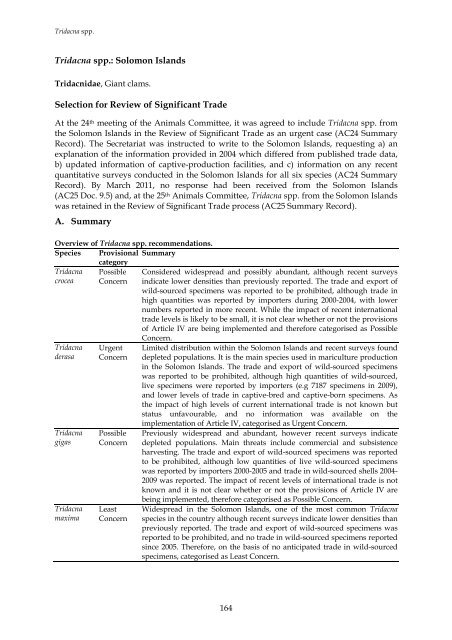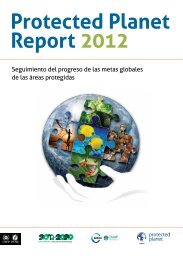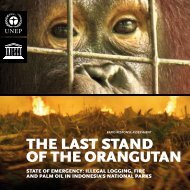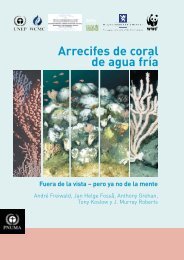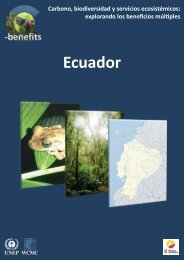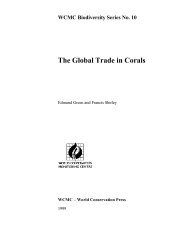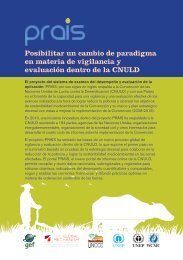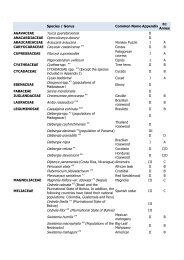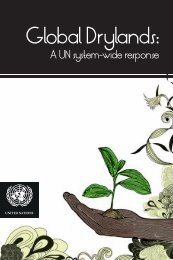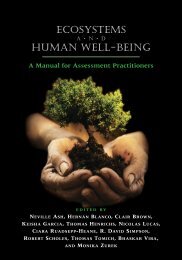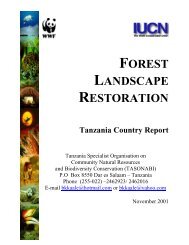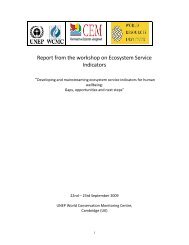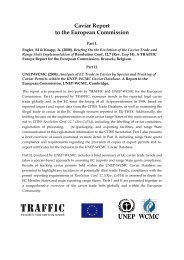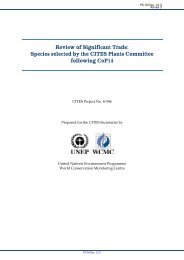2012. Review of Significant Trade - Cites
2012. Review of Significant Trade - Cites
2012. Review of Significant Trade - Cites
You also want an ePaper? Increase the reach of your titles
YUMPU automatically turns print PDFs into web optimized ePapers that Google loves.
Tridacna spp.<br />
Tridacna spp.: Solomon Islands<br />
Tridacnidae, Giant clams.<br />
Selection for <strong>Review</strong> <strong>of</strong> <strong>Significant</strong> <strong>Trade</strong><br />
At the 24 th meeting <strong>of</strong> the Animals Committee, it was agreed to include Tridacna spp. from<br />
the Solomon Islands in the <strong>Review</strong> <strong>of</strong> <strong>Significant</strong> <strong>Trade</strong> as an urgent case (AC24 Summary<br />
Record). The Secretariat was instructed to write to the Solomon Islands, requesting a) an<br />
explanation <strong>of</strong> the information provided in 2004 which differed from published trade data,<br />
b) updated information <strong>of</strong> captive-production facilities, and c) information on any recent<br />
quantitative surveys conducted in the Solomon Islands for all six species (AC24 Summary<br />
Record). By March 2011, no response had been received from the Solomon Islands<br />
(AC25 Doc. 9.5) and, at the 25 th Animals Committee, Tridacna spp. from the Solomon Islands<br />
was retained in the <strong>Review</strong> <strong>of</strong> <strong>Significant</strong> <strong>Trade</strong> process (AC25 Summary Record).<br />
A. Summary<br />
Overview <strong>of</strong> Tridacna spp. recommendations.<br />
Species Provisional Summary<br />
category<br />
Tridacna<br />
crocea<br />
Possible<br />
Concern<br />
Considered widespread and possibly abundant, although recent surveys<br />
indicate lower densities than previously reported. The trade and export <strong>of</strong><br />
wild-sourced specimens was reported to be prohibited, although trade in<br />
high quantities was reported by importers during 2000-2004, with lower<br />
numbers reported in more recent. While the impact <strong>of</strong> recent international<br />
trade levels is likely to be small, it is not clear whether or not the provisions<br />
<strong>of</strong> Article IV are being implemented and therefore categorised as Possible<br />
Tridacna<br />
derasa<br />
Tridacna<br />
gigas<br />
Tridacna<br />
maxima<br />
Urgent<br />
Concern<br />
Possible<br />
Concern<br />
Least<br />
Concern<br />
Concern.<br />
Limited distribution within the Solomon Islands and recent surveys found<br />
depleted populations. It is the main species used in mariculture production<br />
in the Solomon Islands. The trade and export <strong>of</strong> wild-sourced specimens<br />
was reported to be prohibited, although high quantities <strong>of</strong> wild-sourced,<br />
live specimens were reported by importers (e.g 7187 specimens in 2009),<br />
and lower levels <strong>of</strong> trade in captive-bred and captive-born specimens. As<br />
the impact <strong>of</strong> high levels <strong>of</strong> current international trade is not known but<br />
status unfavourable, and no information was available on the<br />
implementation <strong>of</strong> Article IV, categorised as Urgent Concern.<br />
Previously widespread and abundant, however recent surveys indicate<br />
depleted populations. Main threats include commercial and subsistence<br />
harvesting. The trade and export <strong>of</strong> wild-sourced specimens was reported<br />
to be prohibited, although low quantities <strong>of</strong> live wild-sourced specimens<br />
was reported by importers 2000-2005 and trade in wild-sourced shells 2004-<br />
2009 was reported. The impact <strong>of</strong> recent levels <strong>of</strong> international trade is not<br />
known and it is not clear whether or not the provisions <strong>of</strong> Article IV are<br />
being implemented, therefore categorised as Possible Concern.<br />
Widespread in the Solomon Islands, one <strong>of</strong> the most common Tridacna<br />
species in the country although recent surveys indicate lower densities than<br />
previously reported. The trade and export <strong>of</strong> wild-sourced specimens was<br />
reported to be prohibited, and no trade in wild-sourced specimens reported<br />
since 2005. Therefore, on the basis <strong>of</strong> no anticipated trade in wild-sourced<br />
specimens, categorised as Least Concern.<br />
164


